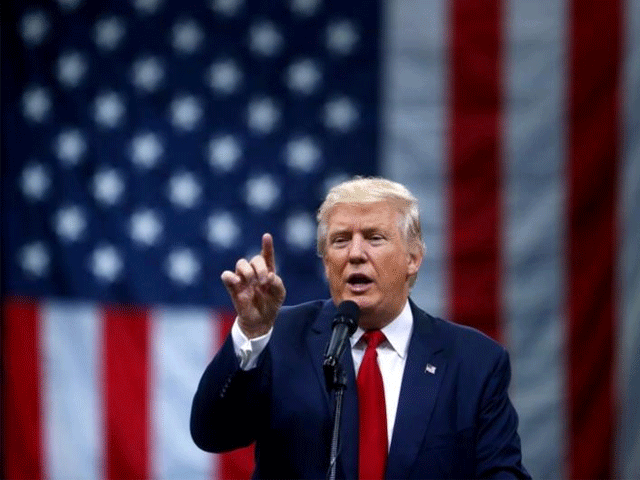
Under pressure to act after a teenager killed 17 people with a semi-automatic rifle in Parkland, Trump had signalled support for raising from 18 to 21 the federal minimum age for purchasing the powerful weapons.
But measures unveiled by his administration Sunday made no mention of any such action -- nor of enforcing the vetting of buyers for firearm sales that take place online and at gun shows, another idea floated by the White House.
Why Trump's strategy on Pakistan may not work
Instead Education Secretary Betsy DeVos put the focus squarely on Trump's highly-controversial push to arm teachers and administrators, saying it was "committed to working quickly" on the move opposed by educator groups but backed by the powerful National Rifle Association.
On the issue of vetting gun buyers, the White House has endorsed minor legislation in Congress to improve federal and state databases used for background checks by licensed dealers.
And, more than five months after a man killed 58 people in Las Vegas using multiple AR-15 rifles equipped with so-called "bump stocks" -- devices that turn semi-automatic rifles in machine guns -- the Justice Department Saturday announced a proposal to ban them, a move that could take months.
Trump touted his actions Monday, saying the White House would back "very strong improvement and strengthening of background checks."
"Bump Stocks will soon be out. Highly trained expert teachers will be allowed to conceal carry, subject to State Law," he tweeted.
But regarding age limits, he said, it would be left to individual states to act.
"Not much political support (to put it mildly)," Trump said.
Trump’s vendetta against Pakistan
Critics accused Trump of wilting after three of the worst mass shootings in US history scarred his first year in office, saying the measures fall far short of what is needed.
"The White House has taken tiny baby steps designed not to upset the NRA, when the gun violence epidemic in this country demands that giant steps be taken," said Chuck Schumer, the Senate Democratic leader.
Robert Spitzer, an expert on the gun rights debate and chair of the political science department at the State University of New York, College at Cortland, foresaw no meaningful reform despite a "startling" campaign launched by student survivors in Florida.
"His initiative basically amounts to a big nothing," he said of Trump.
Polls since the shooting at Parkland's Marjory Stoneman Douglas High School show the US public has turned strongly for tougher regulations.
Students from the school have taken the lead in a national campaign to advance gun control, meeting Trump and other leading politicians, and helping force through a new law on age limits for purchasers in Florida.
But the NRA, a potent lobby which considers the US Constitution's Second Amendment to grant broad gun ownership rights, has pressed the White House and Congress to hold off.
On Friday it filed a lawsuit contesting Florida's new age limit law.
"It totally eviscerates the right of law-abiding adults between the ages of 18 and 21 to keep and bear arms," the NRA said.
Trump chastised a group of legislators he met at the White House at the end of last month, telling them they were afraid of the gun lobby.
But NRA leaders have met privately with Trump himself twice in recent weeks, and the president has noticeably tempered his calls for more gun controls in the wake of the Florida shooting.
Spitzer was deeply pessimistic on the chances of action on gun control in a Republican-controlled Congress that faces a tough election battle in November.
"The NRA did not want to see Congress enacting any legislation," he said. "If there are 100 mass shootings next week, the Congress is not going to move on any significant new gun law.



1732503274-0/Untitled-design-(43)1732503274-0-165x106.webp)
1732501636-0/Untitled-design-(42)1732501636-0-165x106.webp)












COMMENTS
Comments are moderated and generally will be posted if they are on-topic and not abusive.
For more information, please see our Comments FAQ